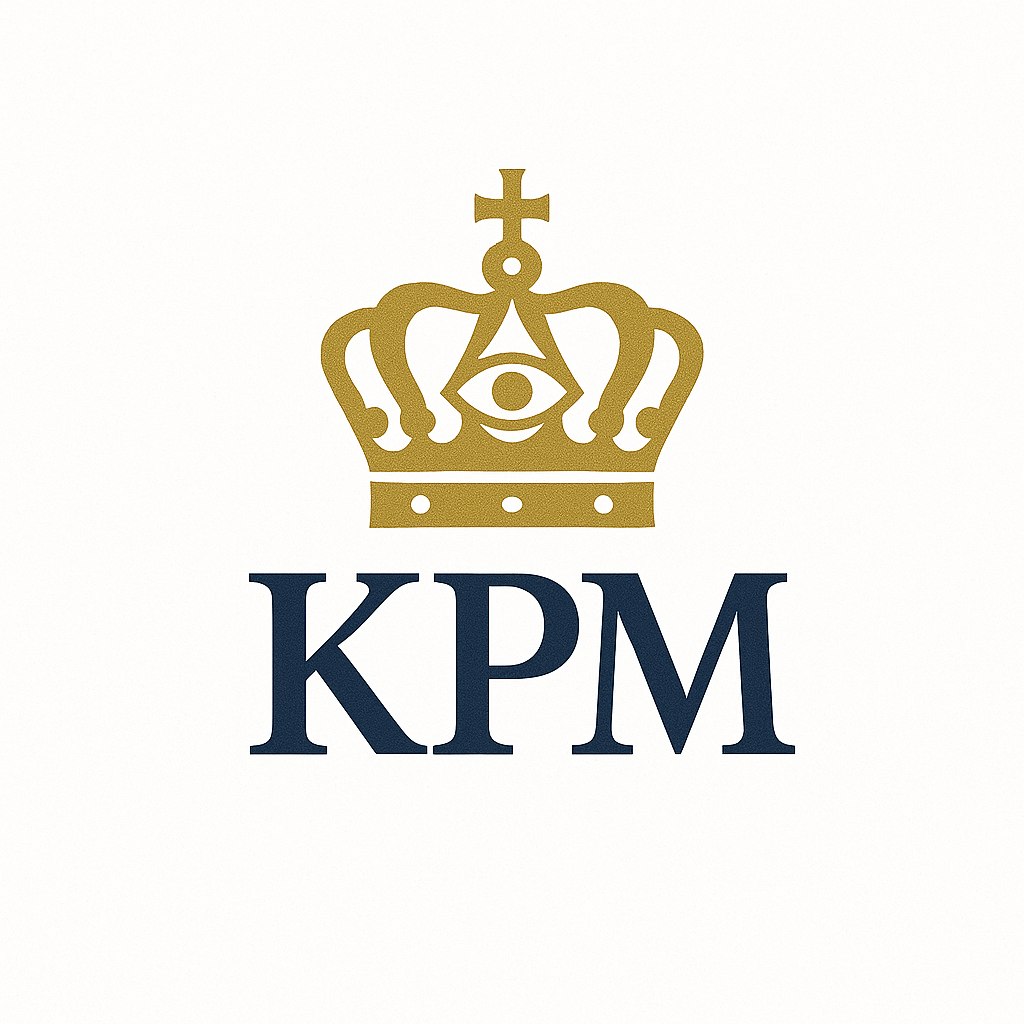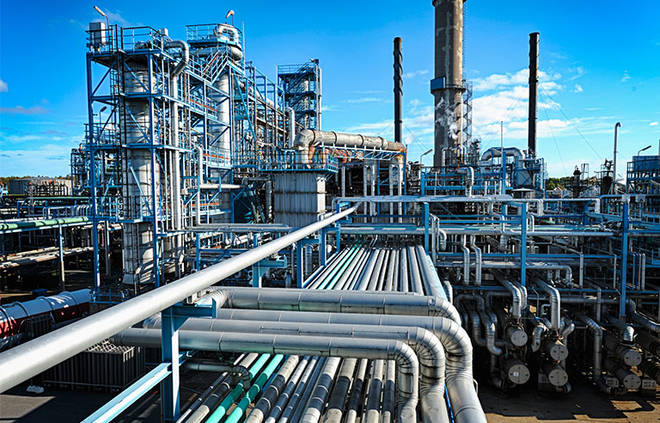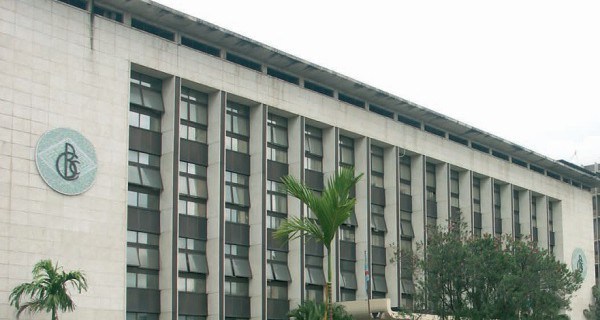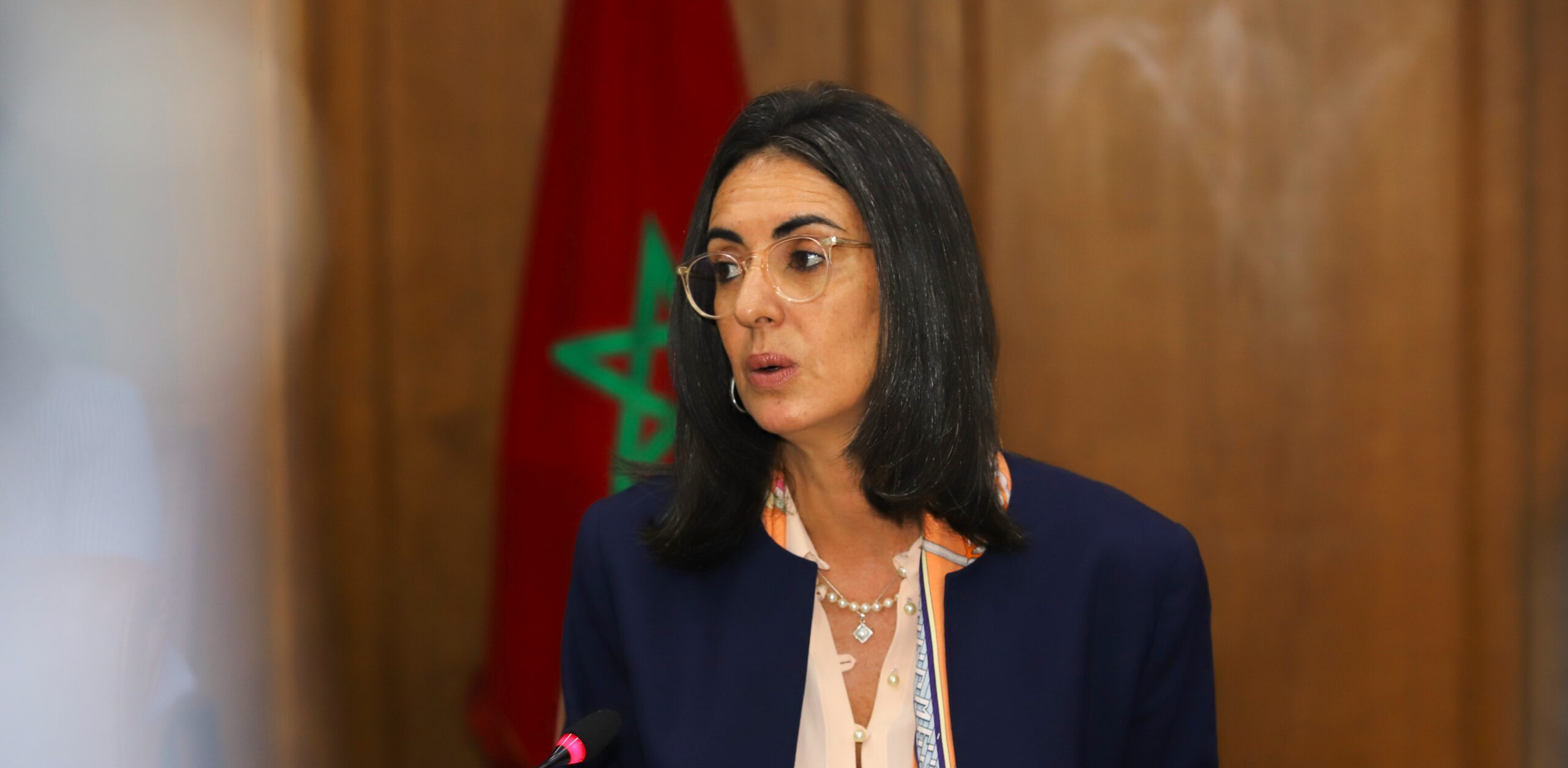TotalEnergies Exits, Liabilities Stay: The PIA Stress-Test for Nigeria’s Oil Future
TotalEnergies (TTE) exits OML 118 in a $510m deal, handing Shell (SHEL) & Eni (ENI) more oil and up to $1–2bn in future liabilities. Nigeria pumps 1.45mbpd vs 1.8mbpd OPEC quota; any 40–50kbpd uplift could add $1.2–1.5bn yearly at Brent $84/bbl.
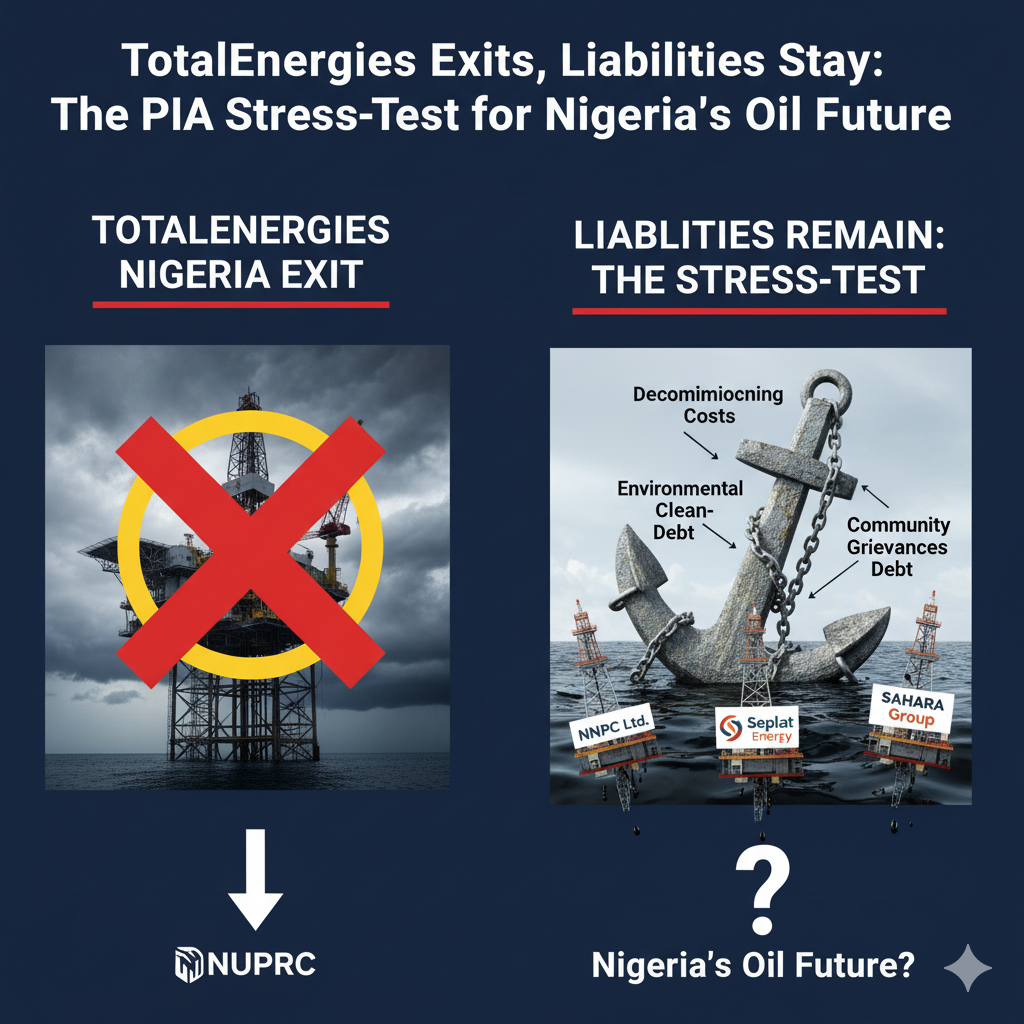
The approval by Nigeria’s upstream regulator of TotalEnergies’ (NYSE: TTE) $510 million divestment of its 12.5% stake in Oil Mining Lease (OML) 118 to Shell Nigeria Exploration and Production Company, a unit of Shell (LON: SHEL), and Nigerian Agip Exploration, a subsidiary of Eni (BIT: ENI), is more than a routine asset transfer. It highlights how the Petroleum Industry Act (PIA) 2021 is reshaping deal structures, liability management, and investor expectations in Africa’s largest oil producer.
For TotalEnergies, the move reflects a global strategy of portfolio pruning. The $510 million inflow boosts financial flexibility while shifting decommissioning, abandonment, and host community obligations to the buyers. TotalEnergies posted Q2 2025 net income of $4.6 billion and output of 2.48 million boe/d, with Nigeria representing only a small slice of its global mix. The exit reduces exposure to long-tail risks and releases capital for higher-return projects elsewhere, including LNG ventures in Mozambique and expansion in Guyana.
For Shell and Agip, the acquisition deepens their control of OML 118, promising operational synergies and stronger production governance. Shell produced 2.11 million boe/d in 2024, while Eni averaged 1.6 million boe/d in H1 2025, with nearly half sourced from Africa. But both companies must now carry inherited liabilities that could far exceed the $510 million transaction value. Global benchmarks show decommissioning costs in mature deepwater blocks can surpass $1–2 billion, while Nigerian host community obligations consumed an estimated $500 million across IOCs in 2023. Managing these commitments without eroding shareholder returns will be central to the deal’s success.
For the regulator, the deal underscores a new era of accountability. By requiring assignees to assume legacy obligations, NUPRC is enforcing the PIA’s liability-transfer provisions and raising the bar for dealmaking. Asset sales are no longer simple ownership changes but comprehensive packages where financial and technical strength are prerequisites. This could limit the buyer pool but improves quality control in a sector long criticized for opaque divestments.
The market response will be nuanced. On one side, regulatory certainty builds confidence, suggesting Nigeria can execute large-scale transactions under the PIA framework. On the other, the heavier liability burden increases the risk premium, compelling investors to demand higher returns. Nigeria’s oil production remains stuck near 1.45 mbpd, below its 1.8 mbpd OPEC quota. If Shell and Agip can raise output from OML 118 by 40–50 kbpd by 2027, Nigeria could add $1.2–1.5 billion in export revenues annually at Brent (ICE: BRN) prices near $84/bbl. But if decommissioning costs balloon, capital may be diverted from new drilling, dampening long-term output and squeezing fiscal inflows.
The regional benchmark puts Nigeria’s approach in perspective. In Angola, ExxonMobil (NYSE: XOM) has exited shallow-water assets, leaving Sonangol and independents to shoulder decommissioning. In Mozambique, both TotalEnergies and Eni shifted investment toward LNG megaprojects, offloading aging assets to domestic players. Nigeria’s insistence that buyers explicitly absorb host-community and abandonment liabilities makes its framework more stringent. While this could reduce deal volume, it builds systemic stability by embedding accountability into asset transfers.
Looking forward, three scenarios frame investor expectations. In the optimistic case, Shell and Agip deploy additional capital and lift OML 118 output, helping Nigeria inch closer to its OPEC quota while boosting royalties and petroleum profit tax receipts. In the baseline case, production holds steady, with the main gain being continuity of operations and liability clarity. In the pessimistic case, decommissioning costs overshoot $1 billion, straining Shell’s $11 billion buyback program and Eni’s 6.5% dividend commitments, while curtailing fresh investment in Nigeria. Such an outcome could widen Nigeria’s fiscal gap, already reflected in Eurobond yields near 9%.
For host communities, the test will be whether Shell and Agip deliver on social programs and environmental commitments. Any failure risks inflaming tensions in the Niger Delta and denting investor confidence. For Nigeria, the broader question is whether divestments under the PIA will catalyze responsible operations, stable revenues, and sustainable growth.
This is not just a $510 million transaction. It is a litmus test of how Nigeria’s petroleum reforms are redefining value, risk, and accountability in one of the world’s most complex oil environments.

